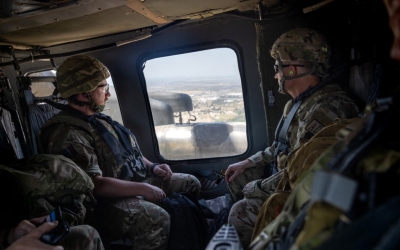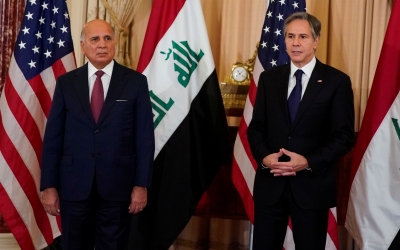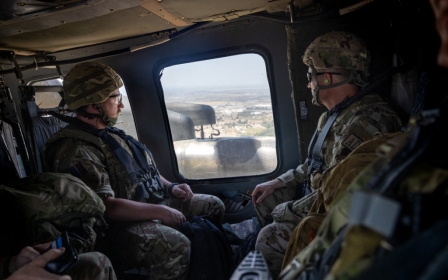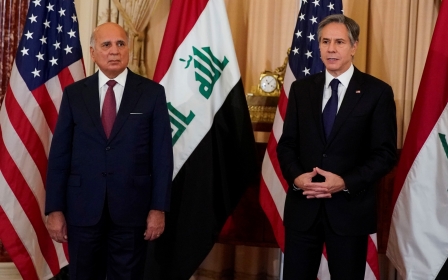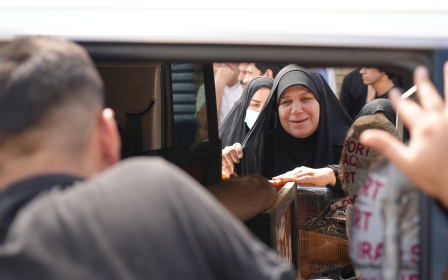Biden and Kadhimi seal agreement at White House to end US combat mission in Iraq
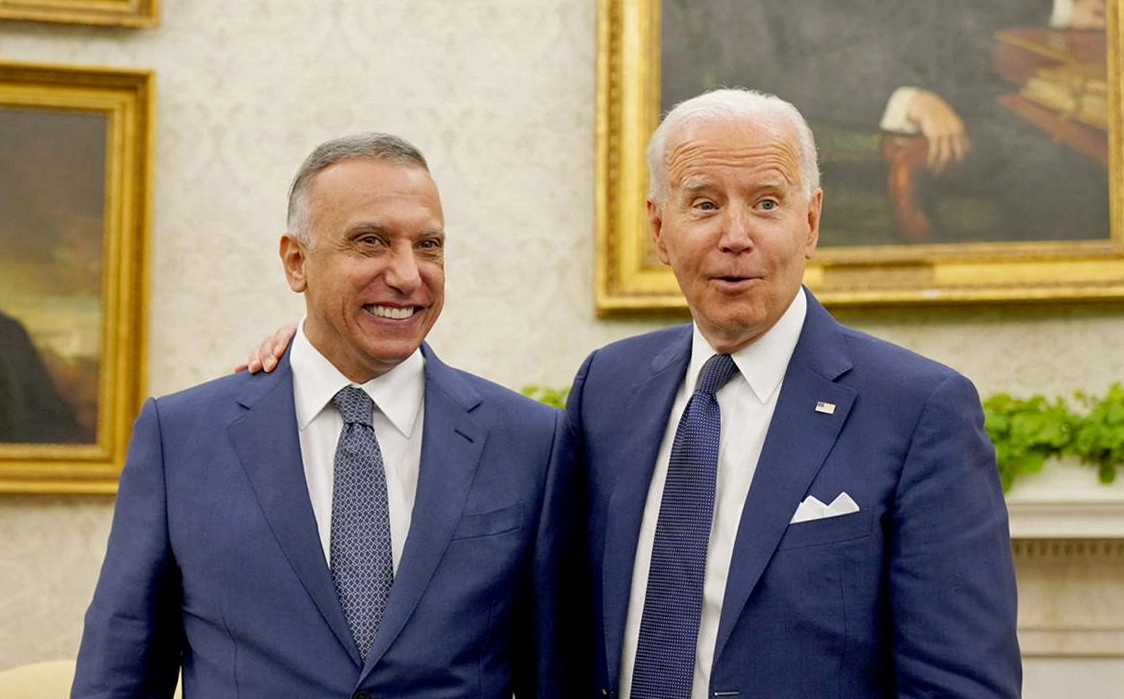
US President Joe Biden and Iraqi Prime Minister Mustafa al-Kadhimi sealed an agreement on Monday formally ending the US combat mission in Iraq by the end of 2021, but US forces will still operate there in an advisory role.
The agreement comes at a politically delicate time for the Iraqi government and could be a boost for Baghdad.
Kadhimi has faced increasing pressure from Iran-aligned parties and paramilitary groups who oppose the US military role in the country.
The pro-Iran groups on Tuesday welcomed the announcement, an outcome they had long demanded.
Biden and Kadhimi met in the Oval Office for their first face-to-face talks as part of a strategic dialogue between the United States and Iraq.
"Our role in Iraq will be... to be available, to continue to train, to assist, to help and to deal with ISIS (Islamic State) as it arises, but we’re not going to be, by the end of the year, in a combat mission," Biden told reporters as he and Kadhimi met.
Middle East Eye reported in April that the US and Iraq had agreed to the withdrawal of all foreign combat forces operating under the umbrella of the US-led military coalition.
There are currently 2,500 US troops in Iraq focusing on countering the remnants of Islamic State (IS).
The US role in Iraq will shift entirely to training and advising the Iraqi military to defend itself.
The shift is not expected to have a major operational impact since the US has already moved toward focusing on training Iraqi forces.
Bush wars
The deal to end the combat mission in Iraq follows Biden's decision to carry out an unconditional withdrawal from Afghanistan and wrap up the US military mission there by the end of August.
Together with his agreement on Iraq, the Democratic president is moving to formally end the US combat missions in the two wars that then-President George W Bush began under his watch nearly two decades ago.
A US-led coalition invaded Iraq in March 2003 based on charges that then-Iraqi leader Saddam Hussein's government possessed weapons of mass destruction.
Saddam was ousted from power, but such weapons were never found.
In recent years, the US mission was focused on helping defeat IS fighters in Iraq and Syria.
"Nobody is going to declare mission accomplished. The goal is the enduring defeat of ISIS," a senior administration official told reporters ahead of Kadhimi's visit.
The reference was reminiscent of the large "Mission Accomplished" banner on the USS Abraham Lincoln aircraft carrier above where Bush gave a speech declaring major combat operations over in Iraq on May 1, 2003.
Technical reviews
US diplomats and troops in Iraq and Syria were targeted in three rocket and drone attacks earlier this month. Analysts believed the attacks were part of a campaign by Iran-backed militias.
The senior administration official would not say how many US troops would remain on the ground in Iraq for advising and training.
Kadhimi also declined to speculate about a future US drawdown, saying troop levels would be determined by technical reviews.
The prime minister, who is seen as friendly to the US, has tried to check the power of Iran-aligned militias.
But his government condemned US air strikes against Iran-aligned fighters along its border with Syria in late June, calling it a violation of Iraqi sovereignty.
In remarks to a small group of reporters after the talks, Kadhimi stressed that his government was responsible for responding to such attacks.
He acknowledged that he had reached out to Tehran to address them, Reuters reported.
"We speak to Iranians and others in an attempt to put a limit to these attacks, which are undermining Iraq and its role," he said.
The United States plans to provide Iraq with 500,000 doses of the Pfizer/BioNTech Covid-19 vaccine under the global Covax vaccine-sharing programme. Biden said the doses should arrive in a couple of weeks.
The US will also provide $5.2m to help fund a UN mission to monitor October elections in Iraq.
"We're looking forward to seeing an election in October," said Biden.
Middle East Eye delivers independent and unrivalled coverage and analysis of the Middle East, North Africa and beyond. To learn more about republishing this content and the associated fees, please fill out this form. More about MEE can be found here.


